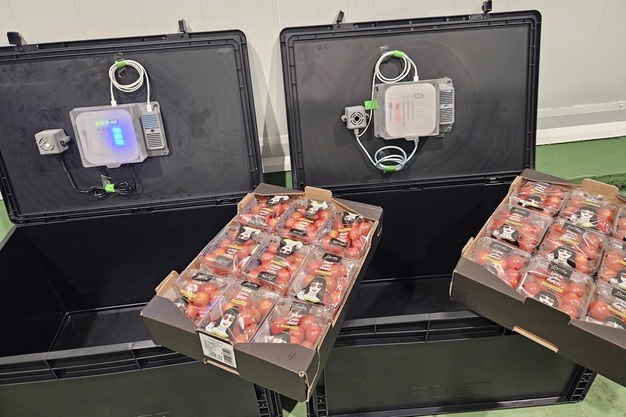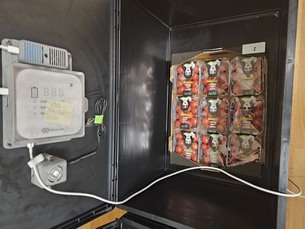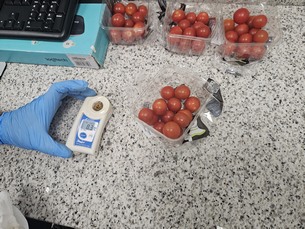According to estimates, nearly 10% of the food available to consumers in the European Union goes to waste, a very high percentage considering that there are more than 37 million people in the EU who cannot afford a quality meal every other day. In this context, reducing food waste and food losses are two of the main objectives of administrations to achieve a circular economy by 2050.
Different research projects are being carried out to achieve these goals. The SISTERS project is one of them. The Association of Fruit and Vegetable Producers-Exporters of the Region of Murcia (Proexport) and 17 other partners from eight countries are participating in this project, which is approaching its final year of development.

"Our participation in the SISTERS project has taught us that the details are everything when it comes to translating moral requirements into the real world. Sometimes they can prevent a magnificent idea from reaching a real dimension and tangible results," stated Abelardo Hernández, Proexport's technical director.
This project, funded by the EU under the H2020 program, proposes solutions along the entire supply chain, innovating in each link to reduce food losses and waste. Proexport is participating in SISTERS to help researchers understand how the sector works and its particularities by sharing with them the vision of primary producers, handlers, packers, and suppliers of fresh fruit and vegetables, and trying to adapt the proposed solutions to the reality of their daily lives.
 The association has participated in the testing in real working conditions of specially designed containers to transport fresh vegetables that can "report" the product's condition. This would allow actors in the chain to take preventive action if there are any warnings of quality problems, thus reducing losses during transport. For example, spinach from the Verdimed company and strawberries from Frutas Esther were sent in specially developed containers, called Bulkboxes, to a laboratory in Italy to evaluate the effectiveness of the proposed system.
The association has participated in the testing in real working conditions of specially designed containers to transport fresh vegetables that can "report" the product's condition. This would allow actors in the chain to take preventive action if there are any warnings of quality problems, thus reducing losses during transport. For example, spinach from the Verdimed company and strawberries from Frutas Esther were sent in specially developed containers, called Bulkboxes, to a laboratory in Italy to evaluate the effectiveness of the proposed system.
Another test, which was recently completed, was carried out with Cherry tomatoes from Looije-Águilas. In this case, researchers studied whether the use of Storeboxes, hermetically sealed boxes specifically prepared for this purpose, would make it possible to extend the product's shelf life and, therefore, reduce losses during retail sales.
"We're not fooling ourselves. The proposed technical solutions are complex and it is not enough that they work and reduce waste in a link that is already quite fine-tuned. Implementing them at the industrial level will require evaluating other aspects such as the space that the containers occupy or the cost-benefit ratio," Hernández warned.
 However, it is in other types of proposed solutions where the details are causing researchers real headaches. "We can't see the link that the popular imagination makes between the short marketing chain and food waste reduction. People consider 'direct sales' to be a 100% anti-waste tool as if this type of channel had no surplus issues. I am afraid that the reality is different. The capacity to manage, foresee, and adapt is much lower, and that's without taking into account logistical issues. There's no doubt this system has its place in the huge perishable products market. However, when it comes to fighting food waste, its effectiveness has yet to be demonstrated," Proexport's representative at SISTERS stated.
However, it is in other types of proposed solutions where the details are causing researchers real headaches. "We can't see the link that the popular imagination makes between the short marketing chain and food waste reduction. People consider 'direct sales' to be a 100% anti-waste tool as if this type of channel had no surplus issues. I am afraid that the reality is different. The capacity to manage, foresee, and adapt is much lower, and that's without taking into account logistical issues. There's no doubt this system has its place in the huge perishable products market. However, when it comes to fighting food waste, its effectiveness has yet to be demonstrated," Proexport's representative at SISTERS stated.
The next steps are related to new packaging materials to replace those manufactured from fossil fuels using bio-based, compostable materials made out of a fraction of polymers from plant-waste extracts. Work is being carried out on new trays, baskets, flow-packs, stretch-film, etc., which must have the same mechanical properties and provide the same protection for vegetables as current materials while also contributing to reducing food waste. It's an ambitious goal, even more so considering the forthcoming publication of legislation that will prohibit the use of any packaging on vegetable products below 1.5 kg.
For more information:
PROEXPORT
Ronda de Levante, 1, Entlo.
30008 Murcia (Spain)
T: +34 646 27 80 50
Email: mjmoreno@proexport.es
www.proexport.es
https://sistersproject.eu
https://www.europarl.europa.eu
